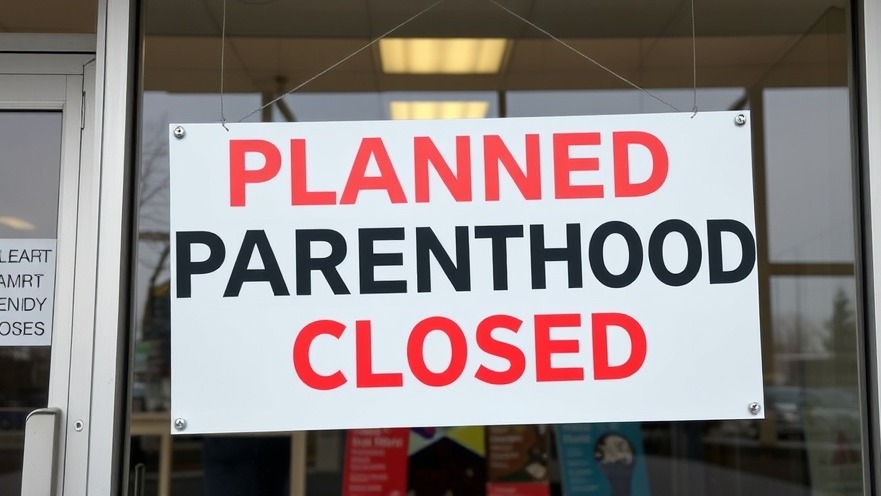
The Impact of Planned Parenthood's Defunding in Texas
In recent years, the closure of Planned Parenthood clinics in Texas has sparked significant discussion about the implications of defunding reproductive health services. A report from Every Texan provided a stark examination of this situation, revealing that since law changes began targeting Planned Parenthood, access to vital health care has plunged, especially for marginalized communities.
The Nationwide Trend of Funding Cuts
Following Texas's lead, the federal government has now cut off public money to Planned Parenthood affiliates across the U.S., as recently underscored by actions that echo the Texas experience. The majority of Planned Parenthood clinics in Texas have already shut down or merged its services, with the national impact potentially leading to the closure of up to 200 health centers across the country.
Strategies to Adapt to a Changing Landscape
Faced with these challenges, Texas Planned Parenthood affiliates have adopted new strategies. This has involved consolidating resources, launching telehealth services, and focusing on a mix of private insurance and donor funding to sustain operations. Whether these efforts can sufficiently cover the gap left by the loss of public funding remains a question of critical concern for reproductive health advocates.
Analyzing the Ripple Effects on Communities
Data indicates that the absence of Planned Parenthood has led to a decrease in access to abortions in Texas. Reports suggest a drastic reduction in contraceptive access and other essential services among low-income populations, highlighting the role Planned Parenthood plays in communities that often lack alternative health care providers.
Local vs. National Perspectives
The defunding strategy observed in Texas serves as a cautionary tale for other states and the nation as a whole. As reproductive health care services face increased scrutiny and funding cuts, there is growing concern regarding the public health implications of denying access to safe and affordable reproductive care. Observers note that such actions not only threaten health services but could also exacerbate existing health disparities, especially for vulnerable populations.
The Future of Reproductive Health Care
As opposition against Planned Parenthood mounts, advocates fear that the trend of defunding could extend to other states. This growing national conversation places pressure on lawmakers to rethink funding models for reproductive health, aiming for systems that prioritize universal access. The situation encourages communities to come together to protect and advocate for reproductive health rights in the face of potential legislative action that favors defunding essential services.
Conclusion: Taking Action and Staying Informed
In the face of shifting priorities surrounding reproductive health care, it's crucial for Texans to remain informed. Engaging with local advocacy groups, understanding the impact of policies, and participating in public discussions can foster better outcomes for future health care access. If you're concerned about reproductive health in your community, connect with local organizations to discover how you can make a difference.
 Add Element
Add Element  Add Row
Add Row 



Write A Comment